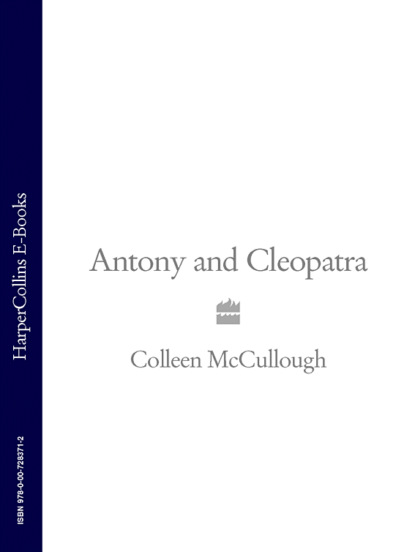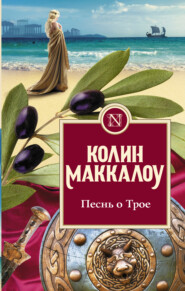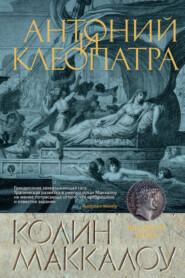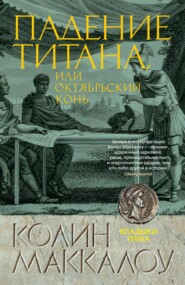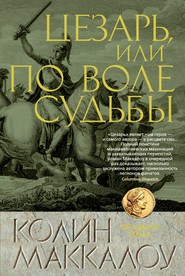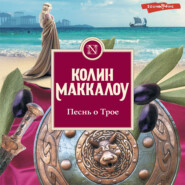По всем вопросам обращайтесь на: info@litportal.ru
(©) 2003-2024.
✖
Antony and Cleopatra
Автор
Год написания книги
2019
Настройки чтения
Размер шрифта
Высота строк
Поля
‘For a start, the regalia. Jews don’t bedizen themselves in gold and Tyrian purple – it’s against their laws. No kingly trappings, no images, and their gold goes into their Great Temple in the name of all the people. Crassus robbed the Great Temple of two thousand gold talents before he set off to conquer the Kingdom of the Parthians. The Jews cursed him, and he died ignominiously. Then came Pompeius Magnus asking for gold, then Caesar, then Cassius. They hope I won’t do the same, but they know I will. Like Caesar, I’ll ask them for a sum equal to what Cassius asked for.’
Dellius wrinkled his brow. ‘I don’t – ah …’
‘Caesar demanded a sum equal to what they gave Magnus.’
‘Oh, I see! I beg pardon for my ignorance.’
‘We’re all here to learn, Quintus Dellius, and you strike me as quick to learn. So fill me in on these Jews. What do the weeds want, and what does Herod the rose want?’
‘The weeds want Herod exiled under pain of death,’ Dellius said, abandoning the avian metaphor. If Antony liked his own better, so would Dellius. ‘Herod wants a Roman decree allowing him to live freely in Judaea.’
‘And who will benefit Rome more?’
‘Herod,’ Dellius answered without hesitation. ‘He may not be a Jew according to their lights, but he wants to rule them by marrying some princess with the proper blood. If he succeeds, I think Rome will have a faithful ally.’
‘Dellius, Dellius! Surely you can’t think Herod faithful?’
The rather faunlike face creased into a mischievous grin. ‘Definitely, when it’s in his best interests. And since he knows the people he wants to rule hate him enough to kill him if they get a tenth of a chance, Rome will always serve his interests better than they will. While Rome is his ally, he’s safe from all but poison or ambush, and I can’t see him eating or drinking anything that hasn’t been thoroughly tasted, nor going abroad without a bodyguard of non-Jews he pays extremely well.’
‘Thank you, Dellius!’
Poplicola intruded his person between them. ‘Solved one problem, eh, Antonius?’
‘With some help from Dellius, yes. Steward, clear the room!’ Antony bellowed. ‘Where’s Lucilius? I need Lucilius!’
On the morrow, the five members of the Jewish Sanhedrin found themselves first on the list of supplicants Mark Antony’s herald called. Antony was clad in his purple-bordered toga and carried the plain ivory wand of his high imperium: he made an imposing figure. Beside him was his beloved secretary, Lucilius, who had belonged to Brutus. Twelve lictors in crimson stood to either side of his ivory curule chair, the axed bundles of rods balanced between their feet. A dais raised them above the crowded floor.
The Sanhedrin leader began to orate in good Greek, but in a style so florid and convoluted that it took him a tediously long time to say who the five of them were, and why they had been deputed to come so far to see the Triumvir Marcus Antonius.
‘Oh, shut up!’ Antony barked without warning. ‘Shut up and go home!’ He snatched a scroll from Lucilius, unfurled it and brandished it fiercely. ‘This document was found among Gaius Cassius’s papers after Philippi. It states that only Antipater, chancellor to the so-called King Hyrcanus at that time, and his sons Phasael and Herod, managed to raise any gold for Cassius’s cause. The Jews tendered nothing except a beaker of poison for Antipater. Leaving aside the fact that the gold was going to the wrong cause, it’s clear to me that the Jews have far more love for gold than for Rome. When I reach Judaea, what will change from that? Why, nothing! In this man Herod I see someone willing to pay Rome her tributes and taxes – which go, I might remind you all, to preserve the peace and wellbeing of your realms! When you gave to Cassius, you simply funded his army and fleets! Cassius was a sacrilegious traitor who took what was rightfully Rome’s! Ah, do you shiver in your shoes, Deiotarus? Well you should!’
I had forgotten, thought the listening Dellius, how pungently he can speak. He’s using the Jews to inform all of them that he will not be merciful.
Antony returned to the subject. ‘In the name of the Senate and People of Rome, I hereby command that Herod, his brother Phasael and all his family are free to dwell anywhere in any Roman land, including Judaea. I cannot prevent Hyrcanus from titling himself a king among his people, but in the eyes of Rome he is no more and no less than an ethnarch. Judaea is no longer a single land. It is five small regions dotted around southern Syria, and five small regions it will remain. Hyrcanus can have Jerusalem, Gazara and Jericho. Phasael the son of Antipater will be the tetrarch of Sepphora. Herod the son of Antipater will be the tetrarch of Amathus. And be warned! If there is any trouble in southern Syria, I will crush the Jews like so many eggshells!’
I did it, I did it! cried Dellius to himself, bursting with happiness. Antonius listened to me!
Herod was by the fountain, but not suffused with the joy that Dellius expected to see. His face was pinched and white – what was the matter? What could be the matter? He had come a stateless pauper, he would leave a tetrarch.
‘Aren’t you pleased?’ Dellius asked. ‘You won without even needing to argue your case, Herod.’
‘Why did Antonius have to elevate my brother too?’ Herod demanded harshly, though he spoke to someone who wasn’t there. ‘He has put us on an equal footing! How can I wed Mariamne when Phasael is not only my equal in rank, but also my older brother? It’s Phasael will wed her!’
‘Come, come,’ said Dellius gently. ‘That’s all in the future, Herod. For the moment, accept Antonius’s judgement as more than you had hoped to gain. He’s come down on your side – the five sparrows have just had their wings clipped.’
‘Yes, yes, I see all that, Dellius, but this Marcus Antonius is clever! He wants what the far-sighted Romans all want – balance. And to put me alone on an equal footing with Hyrcanus is not a Roman enough answer. Phasael and I in one pan, Hyrcanus in the other. Oh, Marcus Antonius, you are clever! Caesar was a genius, but you are supposed to be a dolt. Now I find another Caesar.’
Dellius watched Herod plod off, his mind whirling. Between that brief conversation over dinner and this audience today, Mark Antony had done some research. That was why he’d hollered for Lucilius! And what frauds they were, he and Octavian! Burned all Brutus’s and Cassius’s papers, indeed! But like Herod, I deemed Antonius an educated dolt. He is not, he is not! thought Dellius, gasping. He’s crafty and clever. He will put his hands on everything in the East, raising this man, lowering that man, until the client-kingdoms and satrapies are absolutely his. Not Rome’s. His. He has sent Octavian back to Italia and a task so big it will break so weak and sickly a youth; but, just in case Octavian doesn’t break, Antonius will be ready.
TWO
When Antony left the capital of Bithynia, all of the potentates save Herod and the five members of the Sanhedrin accompanied him, still declaring their loyalty to the new rulers of Rome, still maintaining that Brutus and Cassius had duped them, lied to them, coerced them – ai, ai, ai, forced them! Having scant patience for Eastern weeping and wailing, Antony didn’t do what Pompey the Great, Caesar and the rest had done – invite the most important among them to join him for dinner, travel in his party. No, all the way from Nicomedia to Ancyra, the only town of any size in Galatia, Mark Antony pretended that his regal camp followers didn’t exist.
Here, amid the rolling grassy expanses of the best grazing country east of Gaul, he had perforce to move into Deiotarus’s palace and strive to be amiable. Four days of that were three too many, but during that time Antony informed Deiotarus that he was to keep his kingdom – for the moment. His second most favored son, Deiotarus Philadelphus, was gifted with the wild, mountainous fief of Paphlagonia (it was of no use to anybody), whereas his most favored son, Castor, got nothing, and what the old King should have made of that was now beyond his dwindling mental faculties. To all the Romans with Antony, it meant that eventually drastic changes would be made to Galatia, and not for the benefit of any Deiotarid. For information about Galatia, Antony talked to the old King’s secretary, a noble Galatian named Amyntas who was young, well-educated, efficient and clear-sighted.
‘At least,’ said Antony jovially as the Roman column set off for Cappadocia, ‘we’ve lost a decent percentage of our hangers-on! That gushing idiot Castor even brought the fellow who clips his toenails. Amazing, that a warrior like Deiotarus should produce such a perfect pansy.’
He was speaking to Dellius, who now rode an easy-gaited roan mare and had passed the grumpy pony to Icarus, previously doomed to walk. ‘You’ve lost Pharnaces and his court too,’ said Dellius.
‘Pah! He ought never to have come.’ Antony’s lips curled in contempt. ‘His father was a better man, and his grandfather much better still.’
‘You mean the great Mithridates?’
‘Is there any other? Now there was a man, Dellius, who almost beat Rome. Formidable.’
‘Pompeius Magnus defeated him easily.’
‘Rubbish! Lucullus defeated him. Pompeius Magnus just cashed in on the fruits of Lucullus’s labors. He had a habit of doing that, did Magnus. But his vaingloriousness got him in the end. He began to believe his own publicity. Fancy anyone, Roman or otherwise, thinking he could beat Caesar!’
‘You would have beaten Caesar with no trouble, Antonius,’ said Dellius without a trace of sycophancy in his tone.
‘I? Not if every god there is fought on my side! Caesar was in a class all his own, and there’s no disgrace in saying that. Over fifty battles he generaled, and never lost a one. Oh, I’d beat Magnus if he still lived – or Lucullus, or even Gaius Marius. But Caesar? Alexander the Great would have gone down to him.’
The voice, a light tenor surprising in such a big man, held no resentment. Nor even, reflected Dellius, guilt. Antonius fully subscribes to the Roman way of looking at things: because he had lifted no finger against Caesar, he can sleep at night. To plot and scheme is no crime, even when a crime is committed thanks to the plotting and scheming.
Singing their marching songs lustily, the two legions and mass of cavalry Antony had with him entered the gorge country of the great red river, Halys, beautiful beyond Roman imagination, so rich and ruddy were the rocks, so tortured the planes of cliffs and shelves. There was ample flat ground on either bank of the broad stream, flowing sluggishly because the snows of the high peaks had not yet melted. Which was why Antony was marching overland to Syria; winter seas were too dangerous for sailing, and Antony preferred to stay with his men until he could be sure they liked him better than they had Cassius, to whom they had belonged. The weather was chilly, but bitter only when the wind got up, and down in the bottom of the gorge country there was little wind. Despite its color, the water was potable for men as well as horses; central Anatolia was not a populous place.
The settlement of Eusebeia Mazaca sat at the foot of the vast volcano Argaeus, white with snow, for no one in history remembered its erupting. A blue city, small and impoverished; everyone had looted it time out of mind, for its kings were weak and too parsimonious to keep an army.
It was here that Antony began to realize how difficult it was going to be to squeeze yet more gold and treasure out of the East; Brutus and Cassius had plundered whatever King Mithridates the Great had overlooked. A realization that put him severely out of sorts and sent him with Poplicola, the brothers Decidius Saxa and Dellius to inspect the priest-kingdom of Ma at Comana, not far distant from Eusebeia Mazaca. Let the senile King of Cappadocia and his ludicrously incompetent son stew in their denuded palace! Perhaps at Comana he would find a hoard of gold beneath an innocent-looking flagstone – priests left kings for dead when it came to protecting their money.
Ma was an incarnation of Kubaba Cybele, the Great Earth Mother who had ruled all the gods, male and female, when humanity first learned to tell its history around the campfires. Over the aeons she had lost her power, save in places like the two Comanas, one here in Cappadocia, the other north in Pontus, and in Pessinus, not far from where Alexander the Great had cut the Gordian knot with his sword. Each of these three precincts was governed as an independent realm, its king also serving as high priest, and each lay within natural boundaries like Pontic cherries in a bowl.
Scorning an escort of troops, Antony, his four friends and plenty of servants rode into the beguiling little village of Cappadocian Comana, noting with approval its costly dwellings, the gardens promising a profusion of flowers in the coming spring, the imposing temple of Ma rising atop a slight hill surrounded by a grove of birches, with poplars down either side of a paved avenue that led straight to Ma’s earthly house. Off to one side was the palace: like the temple, its Doric columns were blue with scarlet bases and capitals; the walls behind were a much darker blue, and the shingled roof edged in gilt.
A young man who looked in his late teens was waiting for them in front of the palace, clad in layers of green gauze, a round gold hat upon his head, which was shaven.
‘Marcus Antonius,’ said Antony, sliding from his dappled grey Public Horse and tossing its reins to one of the three servants he had brought with him.
‘Welcome, Lord Antonius,’ said the young man, bowing low.
‘Just Antonius will do. We don’t have any lords in Rome. What’s your name, shaveling?’
‘Archelaus Sisenes. I am Priest-king of Ma.’
‘Bit young to be a king, aren’t you?’
‘Better to be too young than too old, Marcus Antonius. Come into my house.’





